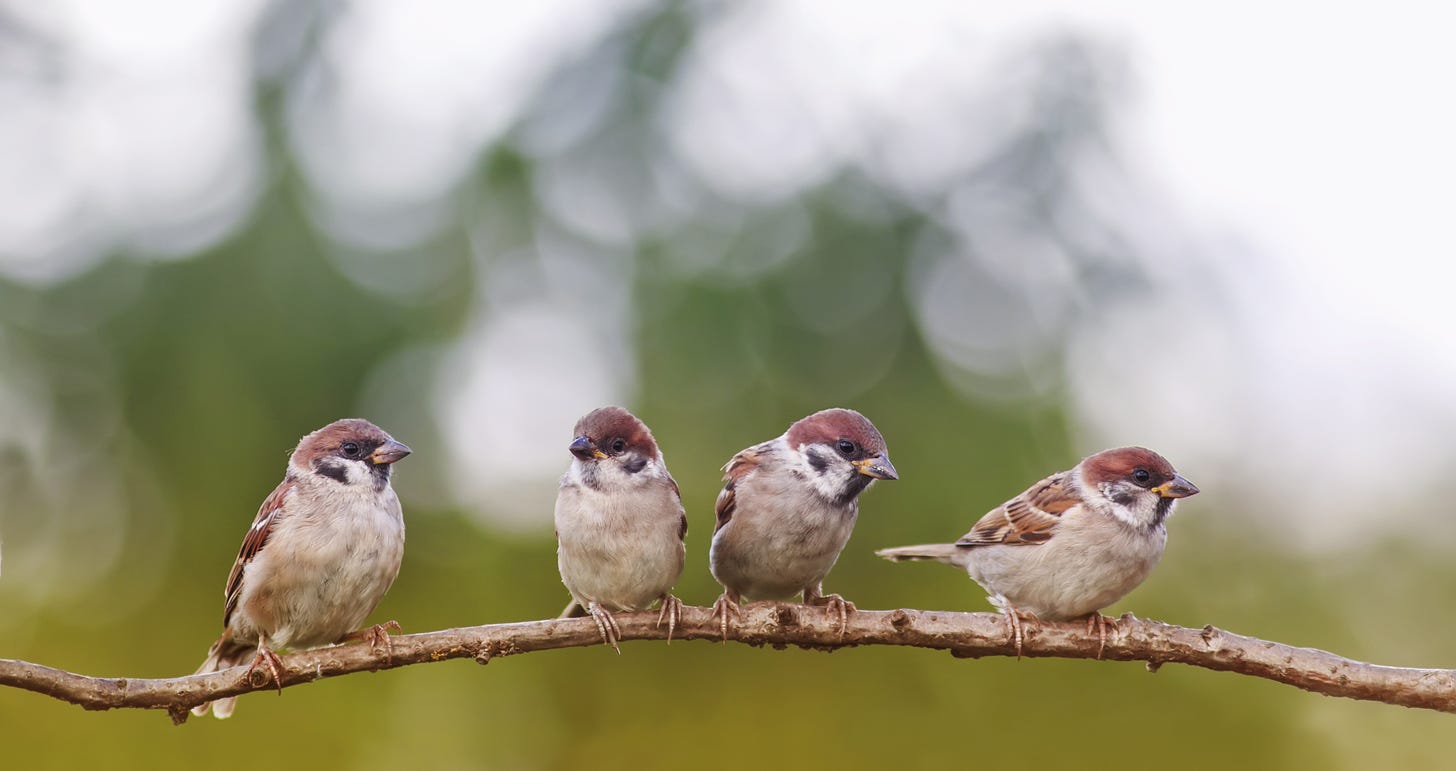Quick Hits
Daily brief research updates from the cognitive sciences
Of course love overrides everything – how could you think differently?!
Well, no it wouldn’t make sense for love to override everything – we need to be alive to love. The question though, is how do competing needs play out in our brain.
If you’re thirst and hungry, or hungry and afraid, what do you prioritise and how does the brain do this?
And what’s this got to do with love?
Well, it’s not really love but potential love (or unromantically: potential mating partner) – and in this piece of research it’s in birds, zebra finches to be precise.

In birds?
Yes, it’s not just mice in neuroscience labs. Andrea Roemer et al. of Cornell University wanted to find out how needs compete with each other in animal models. There is plenty of research into motivation for single needs but little on competing needs.
“Love” is also a bit of a stretch of the imagination, or a very human interpretation. Specifically in this case brain signals of a lone male thirsty zebra finch were measured using optogenetics (i.e. very precise measurement of neuronal activity in real time).
First they were recorded as the thirsty finch was given water and trained to recognise signals for water – but then the researcher added a female zebra finch to see what would happen.
Oh, interesting and what did happen?
First off, we know that dopamine, you will have likely heard for me previously, is triggered by small rewards such as drinking and eating. Dopamine is also considered a motivation transmitter in the brain – triggering motivation to engage in an activity such as getting said drink or food. It is also involved in addiction.
The question now is does adding an extra need, or motivation, mix up dopamine systems, or switch between them, or something else. And then what is prioritised?
…and…
And when the female finch was added to the scenario what happened is that the male zebra finch, who had been trained to recognise a signal for water, ignored the signal and this was accompanied by the dopamine signal being switched off.
So the dopamine system stopped activating to thirst?
Precisely – and it is important to understand that this is biological. We often talk of “psychological” mechanisms but here we can see that this is not “psychological”, switching to another focus, but the signalling mechanism in the brain being deactivated when a new potential reward is added.
And is this really love?
Well, no. But maybe in zebra finch terms it is. What it shows is that attraction to the other sex can trump a simple emotion such as thirst – but this may depend on how severe that other need is.
But it also neatly explain some phenomenon such as how we can ignore certain needs under certain conditions – later the finch may have felt doubly thirsty because of his brain switching from one need to another.
In this case it also shows that there was no real competition in the brain – it wasn’t different dopamine networks fighting it out with each other, rather a damping of the dopamine response in one area of the brain.
It also shows that our brains are constantly rebalancing our needs according to current environmental conditions.
And that male zebra finches prioritise crumpet over other needs
Or prioritise love!
For a deep dive into the brain and love see Your Brain on Love

Andy Habermacher
Andy is author of leading brains Review, Neuroleadership, and multiple other books. He has been intensively involved in writing and research into neuroleadership and is considered one of Europe’s leading experts. He is also a well-known public speaker, speaking on the brain and human behaviour.
Andy is also a masters athlete (middle distance running) and competes regularly at international competitions (and holds a few national records in his age category).
Reference
More Quick Hits
Fresh Teams are More Effective and More Innovative
We all know that just about anything in the world is produced by teams. This has never been more true than in scientific disciplines…
Too Much of a Good Thing – Why Leaders Can be Too Extraverted
Extraversion is considered a positive trait particularly in leadership – but can there be too much of a good thing?
Gene Mutation Leads to Being “Clueless”
Researchers at the UT Southwestern Medical Centre have discovered a genetic mutation that impacts memory and learning.
Humble Leaders Make Teams More Effective
This study showed that those in groups with leaders who showed the highest humility reported multiple positive results all of which can be directly correlated to higher performance.
Micro Breaks Improve Performance and Wellbeing
We all know that taking breaks is good for our brain and wellbeing – in fact we absolutely need to take breaks. It is just the way our brain and body is designed.
Why We Share Posts on Social Media
Is it just pictures of cats that we share on social media? That is a cliché – most of social media does not have post of cats on them and all manner of things are shared.






